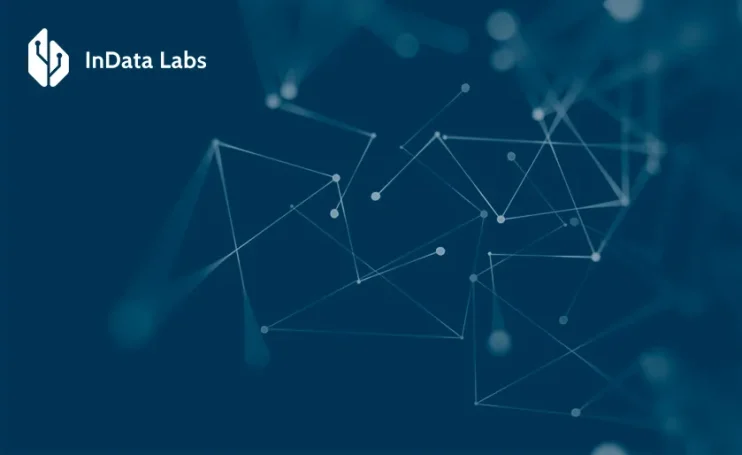Data science as a service has gone from a niche solution to a critical accelerator for businesses in every industry. As companies gather more data than they can possibly process in-house, the demand for outsourced, scalable, and expert-led analytics is skyrocketing.
Data science as a service offers a practical, flexible way to tap into advanced analytics, machine learning, and AI — without needing to build a full internal team. It gives organizations access to specialized talent, infrastructure, and methodologies, enabling faster insights and smarter decisions.
And it’s not just for tech giants. Today, even small and medium-sized businesses use DSaaS to improve operations, detect fraud, personalize marketing, and build new revenue streams.
What is data science as a service?
Basically, this is the on-demand version of traditional data science. Instead of spending lots of time and money hiring an entire team of data scientists, engineers, analysts and other specialists, companies contact external providers who handle everything in one package.

Source: Unsplash
In this model, businesses usually provide access to their data, define a goal or problem to solve, and the provider delivers actionable results — often through dashboards, reports, APIs, or embedded models.
The data science as a service model is highly modular. Clients can choose specific services like model validation, predictive analytics, or data pipeline setup, or outsource entire data science projects from end to end.
Why the model works: efficiency meets flexibility
Let’s face it — building an internal data science team isn’t just hard, it’s slow. First, you have to find the right people. Then there’s onboarding, alignment, infrastructure, team dynamics… the list goes on.
Data science as a service skips all that. Instead of spending six months hiring and training, companies can bring in experienced professionals who’ve already solved problems like theirs — often across multiple industries. These aren’t one-size-fits-all consultants. They’re more like embedded partners who adapt to your context and move fast.
For a mid-sized logistics firm, this might mean using DSaaS to simulate routing strategies before committing millions to new infrastructure. For a healthcare startup, it could be as simple as validating whether their data can even support the kind of predictions they want.
What makes data science as a service compelling is the flexibility. You can start small — say, with a pilot project to assess churn risk — and expand from there. No pressure to lock into long-term contracts. No need to build out departments before you’re ready. In the end, it’s not about dashboards or shiny algorithms. It’s about smart decisions — backed by people who know what they’re doing.
Common use cases and industries
The versatility of data science services means they can be applied across a wide range of verticals. Some typical applications include:
- Retail and E-commerce: personalization engines, price optimization, demand forecasting
- Healthcare: patient risk scoring, diagnostic support, clinical trial optimization
- Finance: fraud detection, credit scoring, portfolio optimization
- Manufacturing: predictive maintenance, quality control, supply chain optimization
- Marketing: customer segmentation, campaign analysis, churn prediction.
The data science impact in each case is direct, measurable, and deeply tied to business outcomes.
Key benefits of data science as a service
Let’s unpack the core data science as a service benefits for companies of all sizes.
-
Speed to value
Rather than waiting months to build a team and environment, DSaaS providers can onboard clients quickly and begin delivering insights fast. The focus shifts from setup to action.

Source: Unsplash
-
Lower upfront investment
There’s no need to invest in expensive infrastructure, tools, or long-term salaries. Pricing is typically usage-based or project-based, making it easier to control costs and scale when needed.
-
Access to cross-industry expertise
Data science companies work with many clients across industries. This means they’ve likely solved similar problems before and bring proven methods and models to the table.
-
Continuous innovation
The best DSaaS providers stay ahead of the curve on emerging tech — from new ML algorithms to real-time analytics — and bring these advancements directly into client work.
-
Flexibility
Need just a single model validated? Want to outsource an entire analytics workflow? The data science as a service company can flex to meet your scope.
-
How DSaaS supports data maturity
Every organization is somewhere on the data maturity curve. Some are just beginning to centralize their reporting. Others already deploy machine learning in production. What makes data science as a service companies valuable is their ability to meet clients at any stage — and help them level up.
Early-stage companies might need help understanding what data they actually have — and whether it’s useful. In this case, DSaaS partners can conduct audits, clean raw inputs, and build foundational pipelines.

Source: Unsplash
For mid-stage businesses, DSaaS might mean transitioning from descriptive to predictive analytics — helping teams forecast, simulate, and optimize. And at the high end of the maturity scale, companies may seek help with:
- Real-time inference at scale
- MLOps pipelines for continuous model improvement
- Responsible AI practices
- Explainability and compliance tools.
There’s no single definition of what data science as a service companies should offer, because every client has different needs. The best ones act as guides, helping teams adopt the right tools and processes at the right time.
Choosing the right data science as a service company
Not all providers are created equal. Here’s what to look for when evaluating data science as a service companies:
- Technical depth: Do they have experience with similar problems or datasets? What tools and frameworks do they use?
- Transparency: Can they explain their models clearly? Do you have access to logs, code, and results?
- Customization: Are solutions tailored to your domain, or are you getting a one-size-fits-all platform?
- Security and compliance: How is your data stored, encrypted, and handled? Can they support your compliance requirements (GDPR, HIPAA, etc.)?
- Business alignment: Do they speak your language? Are they focused on vanity metrics, or do they tie models back to revenue, cost, or risk?
Evaluating a data science as a service company should be as rigorous as hiring a strategic partner. After all, you’re not just buying code — you’re trusting them with your data and your business.
Understanding data science platform as a service
Some vendors offer a hybrid model: data science platform as a service. These platforms provide tools and environments for in-house teams to build, train, and deploy models — while still offering consulting and support services. This is a good middle ground for organizations that want control and customization but don’t want to manage the entire stack themselves.
Platforms often include:
- Drag-and-drop model builders
- Integrated data pipelines
- Automated feature engineering
- Model monitoring dashboards.
- One-click deployment to cloud endpoints.
In some cases, they also offer prebuilt data science and analytics consulting services to help teams use the platform effectively.
How DSaaS supports hybrid teams
Not every company wants to fully outsource analytics. Some have in-house analysts or data scientists who need support — especially when scaling or experimenting with new domains.
That’s where DSaaS can act as an extension of the internal team.
A data science platform as a service provider might handle infrastructure setup and model deployment, while the in-house team focuses on domain expertise and insight interpretation. Or the external team might take on the more technical components — like feature engineering or cloud orchestration — freeing up internal resources.

Source: Unsplash
In one case, a fintech company used DSaaS for model monitoring and retraining, while their internal team managed regulatory documentation and stakeholder reporting. The collaboration gave them speed without sacrificing control. This hybrid model also helps de-risk hiring. Instead of rushing to scale a team during a growth phase, companies can flexibly add DSaaS partners where needed.
And for teams that use data science in SAS environments, many providers offer integration services — helping modernize workflows without a full platform migration. Whether it’s SAS in data science or cloud-native tools, hybrid support means teams don’t need to start from scratch.
SAS data science: a legacy that’s evolving
While Python and R dominate much of today’s open-source analytics, SAS remains deeply entrenched in many enterprises. So let’s talk about SAS data science and where it fits.
Is SAS used in data science today? Absolutely — especially in sectors like healthcare, insurance, and government, where regulatory compliance and security are paramount.
Data science in SAS involves working with specialized libraries for predictive modeling, machine learning, statistical analysis, and reporting. These are backed by decades of research and enterprise-grade support.
SAS and data science go hand in hand when:
- Legacy data environments rely on SAS datasets and formats
- Businesses need certified, validated algorithms
- Auditable model outputs are legally required
- Teams want to integrate with cloud platforms via data science platform as a service.
That said, many companies now combine data science using SAS with modern tools like Python — using SAS Viya or API integrations. The key is choosing the right tool for the job. And in regulated environments, data science with SAS remains a reliable, scalable option.
Tackling common data science challenges
Of course, outsourcing doesn’t make data science easy. Businesses still face tough decisions. Among the most pressing data science challenges:
- Data quality: Incomplete, inconsistent, or biased data leads to bad models.
- Labeling: Supervised learning often requires labeled datasets, which are costly to create.
- Overfitting: Models that work well in training but fail in production.
- Interpretability: Stakeholders need to trust and understand the outputs, especially when AI influences decisions.
- Integration: Embedding models into existing workflows, dashboards, or apps can be harder than building the model itself.
A mature DSaaS provider won’t just hand off predictions. They’ll guide clients through these challenges — helping align technology with business goals and operational constraints.
How DSaaS improves decision-making
At its core, the value of data science as a service isn’t about code or even models — it’s about better decisions. Business leaders often face uncertainty. Should we expand into a new region? Why are users churning? Which product features drive the most value? Traditional BI tools can describe what happened. DSaaS can help predict what comes next.

Source: Unsplash
A retail chain, for example, might use a data science as a service company to forecast demand at the store level — adjusting pricing, staffing, and inventory in near real time. A hospital network could apply predictive modeling to reduce patient readmissions, cutting costs and improving outcomes.
And because these insights come from external experts, they often bypass internal biases or blind spots. That makes DSaaS not just a technical upgrade, but a mindset shift — from reactive to proactive decision-making.
Big data for global development: What’s next
One of the most exciting frontiers for Big data for global development is the use of DSaaS in public sector and nonprofit contexts. Consider a scenario where a humanitarian organization uses satellite imagery, census data, and mobile phone metadata to predict disease outbreaks. Instead of hiring dozens of analysts, they partner with a data science company that builds and deploys models for them.
Or a developing nation tracking crop yields via machine learning to optimize food supply chains. These aren’t speculative examples — they’re happening right now. Data science services are enabling global institutions to make faster, smarter decisions — improving everything from infrastructure planning to crisis response.
The future of data science as a service
As demand for AI-driven decisions continues to grow, the data science as a service market is evolving in several key directions. One major trend is vertical specialization. Instead of offering generic analytics, providers now tailor data science services to specific industries — finance, energy, logistics, education. This domain expertise leads to faster onboarding, more relevant models, and better long-term value.
Another shift is the rise of low-code tools. Modern data science platform as a service tools are increasingly accessible to business users, not just engineers. With prebuilt connectors, drag-and-drop pipelines, and automated model tuning, companies can bring analytics closer to decision-makers.
And as AI becomes more embedded in customer experiences — from chatbots to personalization engines — demand for data science as a service companies that offer real-time infrastructure and ethical AI frameworks is rising fast.
This future also raises new questions:
- How do we ensure model fairness and transparency?
- Who is responsible when algorithms go wrong?
- What happens when synthetic data replaces real datasets?
For companies navigating these questions, working with the right data science as a service company becomes more than just a tactical decision — it’s a strategic one. These partners are no longer just vendors. They’re advisors shaping how businesses interact with data, customers, and the world.
FAQ
-
Data science as a service (DSaaS) is an outsourcing model where companies partner with external experts to handle their data science needs. It typically includes data processing, modeling, and reporting — delivered through APIs, dashboards, or direct integrations. This allows businesses to tap into advanced analytics without hiring a full internal team.
-
Examples include real-time customer behavior predictions for e-commerce, fraud detection models for banks, or churn prediction systems in telecom. In all cases, the company receives analytics or insights through an external provider — often using cloud-based infrastructure and automated pipelines.
-
In this context, SaaS can refer to data science platform as a service tools that let users build and deploy models in the cloud. They offer environments, automation tools, and integrations that simplify the data science workflow. Some platforms also bundle data science and analytics consulting to support internal teams.



